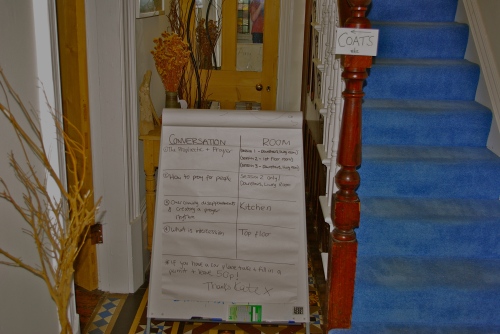“Joseph took her as his wife… and kept her as a virgin until she gave birth to a Son” Matthew 1v24-5
It is the 10th day of Christmas and according to the song there are 10 lords a-leaping somewhere, presumably still celebrating with all their might. In the Church calendar the feast of Christ’s birth is not over until January 5th and then we have the special day Epiphany to celebrate the arrival of the wise men some time later ‘at the house’ the family had moved to from the stable (Matthew 2v11). It seems the astrologers had followed this star for about 2 years, which is quite a journey. Time doesn’t have the same meaning in our modern world.
For us, Christmas is now over, 2013 kissed goodbye, New Year in to a massive burning of coloured fireworks (and money) and we’re into the January sales and discussing what happened to Sherlock. Many decorations have already been taken down to ‘clean house’ for 2014 – but they had been up since December 1st anyway because Advent is the new Christmas. We are not simply not as good at waiting in the dark.
The spiritual life requires seasons of unknowing when we feel uncomfortable – times of testing in the desert, facing up to mystery and realising we don’t have the answers and we never will. The whole of our journey on earth is a time of Advent, waiting for the ‘coming’ of the Lord to us. The Christmas story comes in ‘bleak midwinter’ not because that is the time of year that Jesus was born – and I doubt very much if the middle East gets ‘snow on snow’! – but because this story gives us keys to times of darkness and how to allow God to take us through them so we meet Him there and His life grows in us.
In the early days of pregnancy there is nothing to show. The new mother feels unwell, her appetites change, her hair, her mind is not as sharp, emotions everywhere perhaps – a few bodily alterations caused by different hormones flowing around… I remember the first time going to the doctor simply “feeling ILL”! What a shock an hour later at the lab: Rebecca was on her way! I wonder how long Mary kept her secret, knowing what she did. Elizabeth her cousin had kept mum for 6 months out in the country and Mary soon went to join her. These days we know conception has occurred within a few weeks – but hopefully try to be more careful about telling everyone too soon, as growing babies do not always make it past the 15th week. But then it’s usually wonderful news for us, if we’ve got our life events in the right order… Wonderful, but life-changing – and no going back.
How much more for this Jewish teenager who had encountered an angel. Hand-picked by the God of heaven, highly favoured among women – but the next time you hear God saying nice things to you… WATCH OUT! The calling always takes us way beyond what we expected when our hearts said “Anything for you, Lord”! In the secret place, the dark and desert times the Word will come as light, but at first you’ll just feel ill, unsure – the faith that knows something unseen and has to live with it until the growth begins. It grows inside us for what seems an age and what appears in the end is nothing like what we saw growing – except that these days we have ultra-sound scans to reveal every secret before time.
Faith is like pregnancy – the conception in the dark, secret and intimate place as the Word enters your spirit and is received. “Be it unto me according to your Word” she said – this was no divine rape. She did not know the sword would pierce her soul back then nor could she imagine writhing in the straw as her virgin body contracted in the most important labour of all time – pain in childbirth in every way. Faith’s journey can include these elements for us as well… it’s called the Cross.
Mary was the only woman who had a man come out of her before a man went into her. We’re told that – if the bumpy donkey ride hadn’t done it – it was Jesus’ head that broke her hymen, or the waters bursting forth perhaps – blood and water at His birth foreshadowing the piercing of His heart 33 years later. This mixture from Mary’s innermost being bathed His newborn body like a libation to God, much as the water and the blood wash us and cleanse His Body still. It was a baptism of both life and death, the ending of her innocence and the beginning of ours.
Jesus came to share the mixture of the best and worst of life – the light in darkness and the hope in suffering, the glory in the night. The lowest place is where authority is born – I quote you, “It is finished!” on the Cross! – and if we can but learn to wait and walk the darkest paths, submit to God, allow the entry of His love, we too can rise again.
“Be it unto me according to your word” – and in your time. Happy new beginnings this new year!



